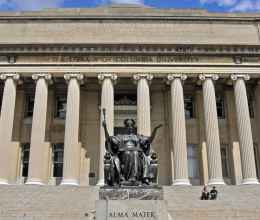
TALLAHASSEE, FL — Six professors from three universities – Florida State University, University of Florida, and Florida International University – will not get the temporary injunctive relief they sought while their case challenging Florida’s latest anti-DEI censorship law continues to move through the litigation process.
A federal court denied the plaintiffs’ motion for a preliminary injunction in Austin v. Lamb, a lawsuit brought by Florida university professors challenging the state’s censorship law, 2023’s Senate Bill 266 (SB 266). The court’s ruling is not a final ruling on the merits of the case. While the case moves forward, it leaves in place sweeping state-imposed restrictions on how professors may teach, research, and engage in scholarship. Despite acknowledging the real harms this law inflicts on academic departments and the broader campus community, the court’s ruling was based on the strict requirements of the Eleventh Circuit to establish standing – the right of any particular plaintiff to bring a lawsuit.
SB 266 bans institutions from funding initiatives that promote diversity, equity, and inclusion (DEI) or political or social activism in public colleges and universities, and censors what viewpoints can be taught in general education courses. Professors who brought the suit argue the law chills their speech, undermines academic freedom, and violates their First Amendment rights.
“This ruling is disappointing, but also offers a clearer path forward to prove this law is unconstitutional,” said Bacardi Jackson, executive director of the ACLU of Florida. “The law is a blatant effort to control the content of higher education, muzzle Florida’s scholars, and erase perspectives the state finds politically inconvenient. We remain committed to fighting alongside faculty, students, and the broader academic community until this undemocratic law is struck down.”
The court found that the defendant universities’ threats to enforce the provisions of SB 266 were speculative and not sufficient to demonstrate a specific imminent future harm to the professors that could justify emergency relief at this early stage. The court, however, did not rule on the ultimate merits of their constitutional claims. The lawsuit will continue as plaintiffs seek to protect their rights and the future of academic freedom in Florida.
“This law weaponizes fear and vague standards to silence professors and erase important parts of history, culture, and lived experience from the classroom,” said Jerry Edwards, staff attorney at the ACLU of Florida. “Florida’s government shouldn’t get to decide what ideas students can learn or what questions faculty can ask. We’ll continue this fight to defend freedom of thought and resist authoritarian efforts to rewrite education in Florida.”
Read the court’s order here.





